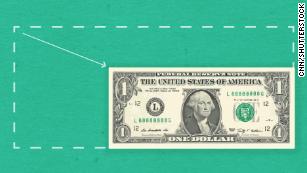Congress wants to kill the ‘backdoor Roth IRA.’ Here’s what it means for you

By Jeanne Sahadi, CNN Business
Updated 12:13 PM ET, Mon November 29, 2021
Tax-free savings in retirement are great to have at your disposal.
But provisions in the Build Back Better bill would limit some of the ways to accrue them in the future — at least for high-income savers.
The provisions are included in the version of the bill that recently passed the House, and is set to go to the Senate for consideration in December.
The provisions are included in the version of the bill that recently passed the House, and is set to go to the Senate for consideration in December.
No more ‘backdoor’ conversions to Roth IRAs
A key way to build tax-free savings is to contribute to a Roth IRA.
While you won’t get a tax break for your contributions to a Roth IRA, the after-tax money you put in will then grow tax-free and can be withdrawn tax-free once you reach retirement age. In 2022 you can contribute up to $6,000 a year ($7,000 if you’re 50 or older).
High earners, however, are prohibited from contributing directly to a Roth IRA if their modified adjusted gross income in 2022 is at least $144,000 ($214,000 if married).
But they can still create a Roth IRA through a so-called “backdoor” strategy that involves converting their other IRA savings.
Although high-income taxpayers are precluded from making deductible contributions to a traditional IRA, they are allowed to make non-deductible ones.
In transferring a non-deductible IRA toa Roth, you would owe tax on the gains that had accrued on your contributions. That’s avoidable, however, if you make the conversion immediately after making your non-deductible IRA contribution, since there would be no time for the moneyto grow.
But this strategy may get the ax. Starting next year, the House-passed bill would prohibit all taxpayers from converting their after-tax contributions using this”backdoor”conversion method to a Roth IRA.
No more ‘mega backdoor’ conversions to a Roth 401(k) either
The bill would also prohibit a similar strategy that is currently permitted when it comes to Roth 401(k)s.
Roth 401(k)s are another great way to build tax-free retirement savings and they are now offered by a majority of employers that offer tax-deferred 401(k) plans. Unlike Roth IRAs, Roth 401(k)s do not have any income eligibility rules and they allow for much higher contributions — up to the 401(k) limit of $20,500 starting next year ($27,000 if you’re at least 50).
On top of that, your employer also may let you make after-tax contributions to your regular 401(k), the gains on which would be taxable when you withdraw them.
Under current law, you may convert those pre-tax and after-tax savings from your 401(k) account into a Roth and thereby skip having to pay taxes on future withdrawals.
In total, savers effectively can sock away up to $61,000 next year ($67,500 if you’re at least 50) — once your contributions, your employer match and your after-tax contributions are counted.
So for high-income earners, it is possible to convert large sums of money into a Roth 401(k) through what’s known as a ‘mega backdoor’ strategy.
Under the bill, however, starting next year, taxpayers would be prohibited from converting the after-tax portion of their 401(k) savings into a Roth.
Read the whole article here: https://www.cnn.com/2021/11/29/success/backdoor-roth-ira-roth-401k/index.html

